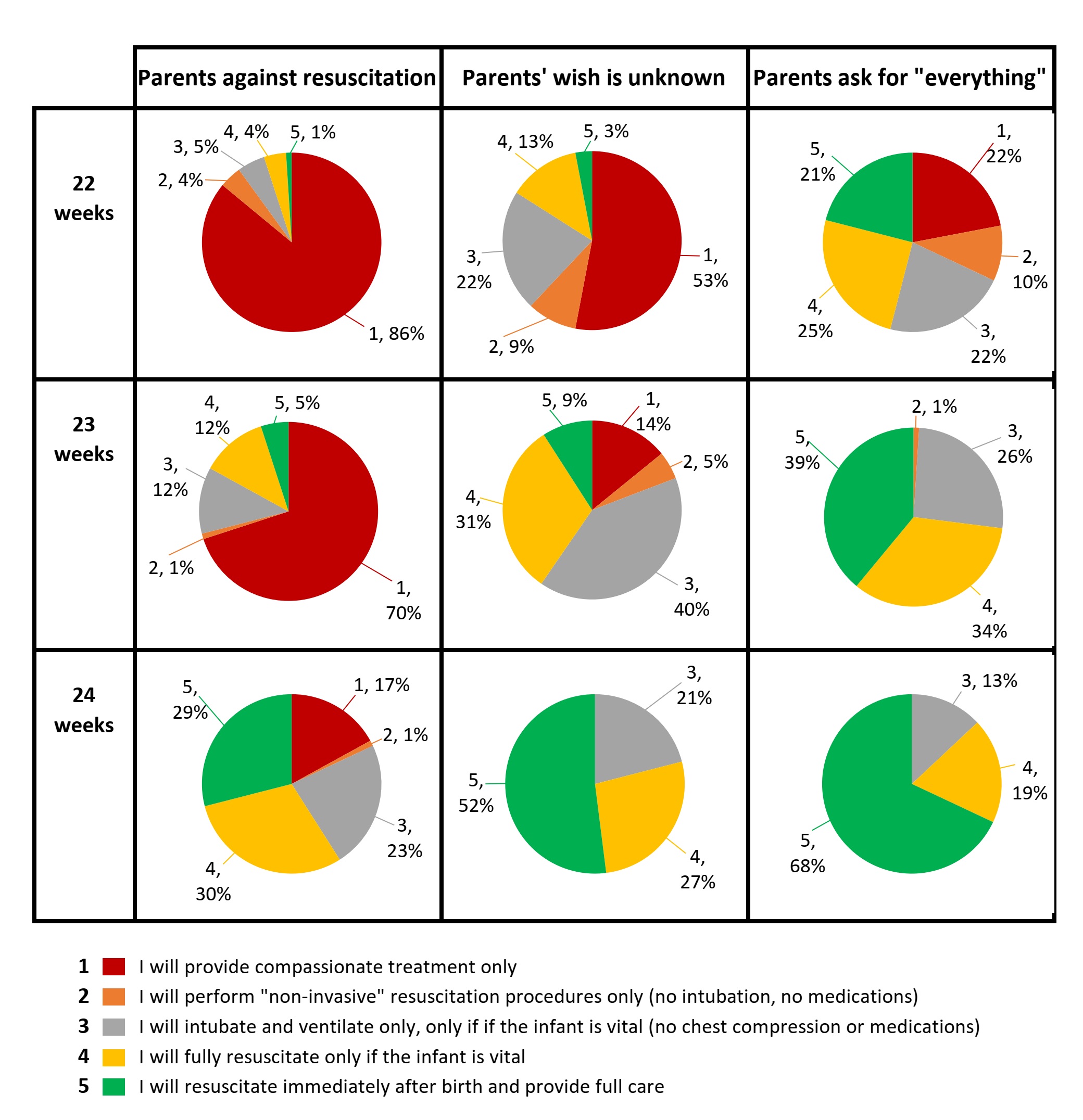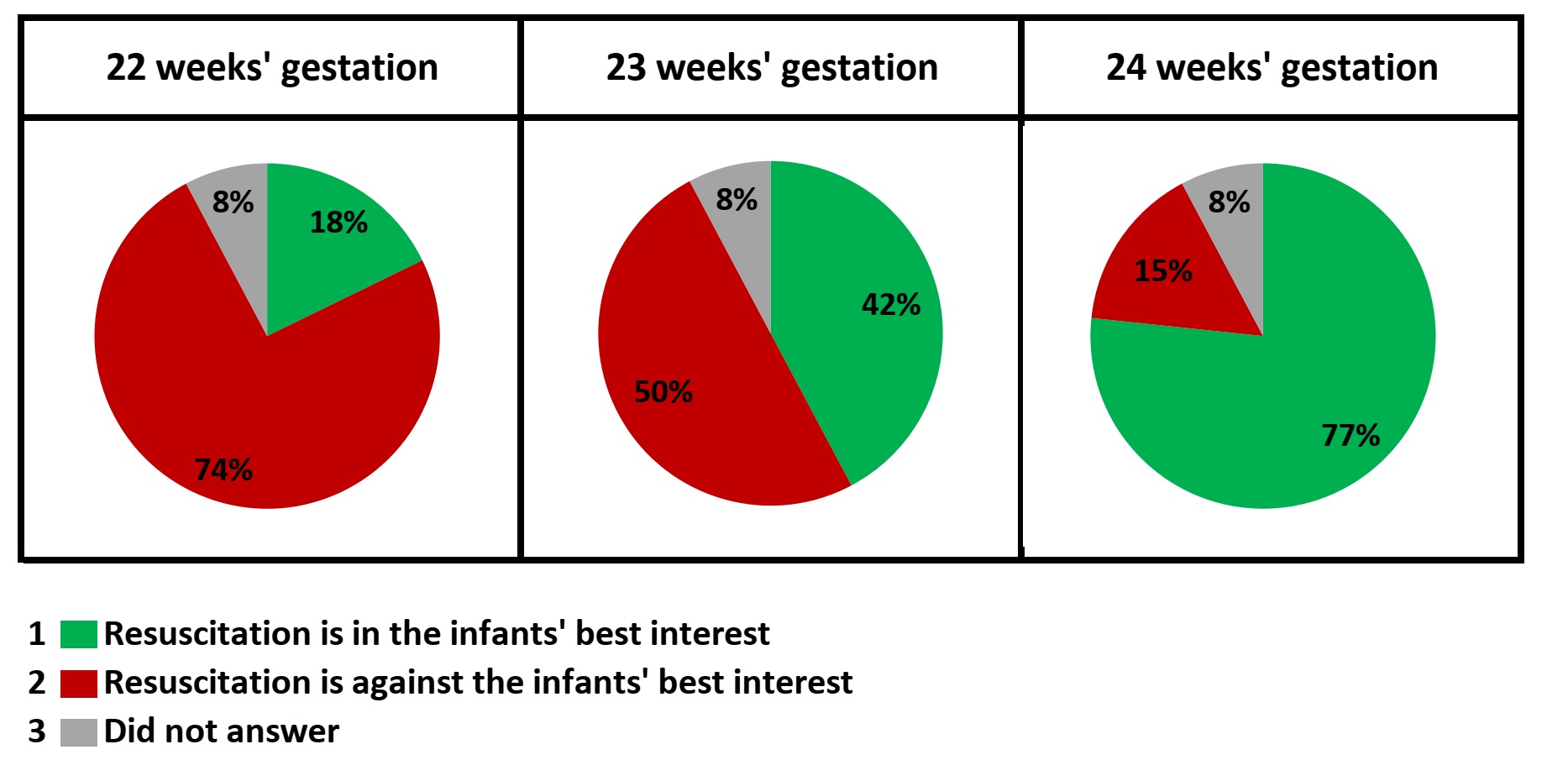Neonatology
Session: Neonatal/Infant Resuscitation 3
296 - At the Threshold of Viability: Perspectives of Neonatologists compared to Resuscitation Guidelines
Monday, May 6, 2024
9:30 AM - 11:30 AM ET
Poster Number: 296
Publication Number: 296.3002
Publication Number: 296.3002
- AK
Amir Kugelman, MD
Director, Department of Neonatology
Rambam Medical Center, Haifa
Haifa, Hefa, Israel
Presenting Author(s)
Background: Births at a very immature stage of development impose a high risk of death or severe long-term neurologic impairment. This can generate medical, ethical, and legal controversies, challenges, and opportunities. The counseling and management of deliveries at the limit of viability (broadly defined as 22 0/7 weeks through 24 6/7 weeks’ gestation) remains one of the most challenging issues faced by neonatologists
Objective: To examine the perspectives and opinions of neonatologists in Israel regarding the resuscitation of newborns at 22-24 weeks' gestation and how they respond to parental preferences. Additionally, we aimed to identify the factors that influence physicians' decision-making process and determine the extent to which their decisions align with the national clinical guidelines.
Design/Methods: Descriptive and correlative study using a 47-questions online questionnaire.
Results: Ninety (71%) of 127 active neonatologists in Israel responded. 74%, 50%, and 16% of the respondents believed that resuscitation and full treatment at birth are against the best interests of infants born at 22-, 23-, and 24-weeks’ gestation, respectively. Respondents' decisions regarding resuscitation of extreme preterm infants showed significant variation and were consistently in disagreement with either the national clinical guidelines or the perception of what is in the best interest of these newborns. Gender, experience, country of birth and the level of religiosity were all associated with respondents' preferences regarding treatment decisions. Personal values and concerns about legal issues were also believed to affect decision-making.
Conclusion(s): Significant variation was observed among Israeli neonatologists regarding delivery room management of extreme premature infants born at 22-24 weeks' gestation, with a notable emphasis on respecting parents’ wishes. The current national guidelines do not fully encompass the wide range of approaches. Country's guidelines should reflect the existing range of opinions, possibly through a broad survey of caregivers before setting the guidelines and recommendations.


